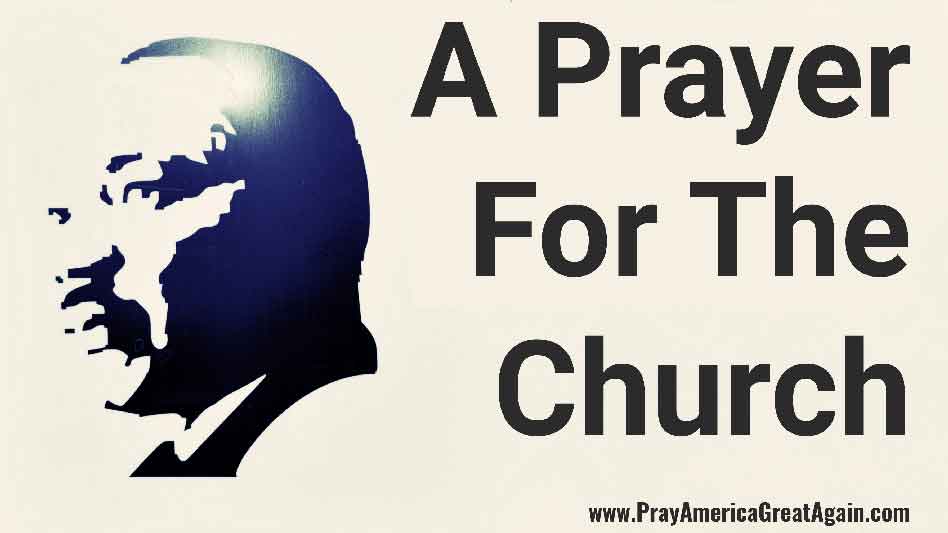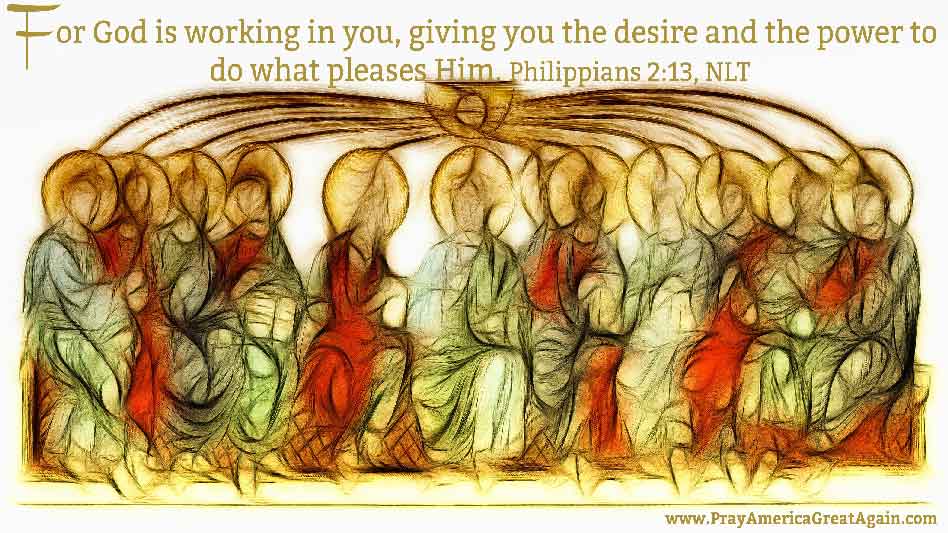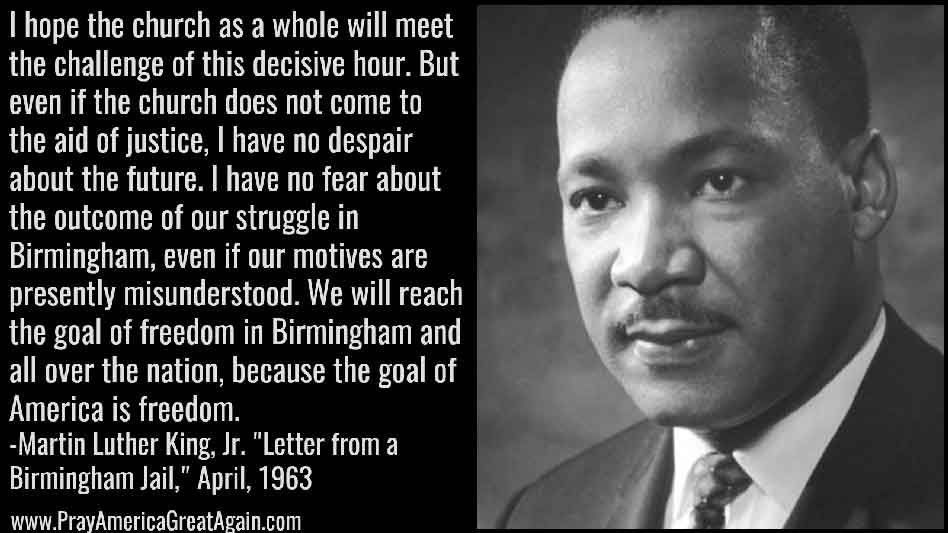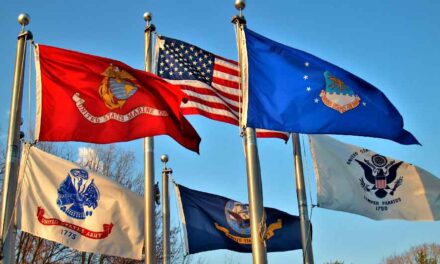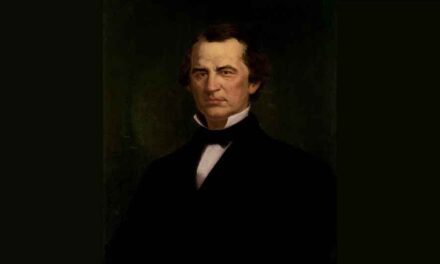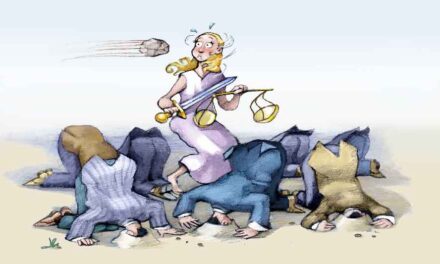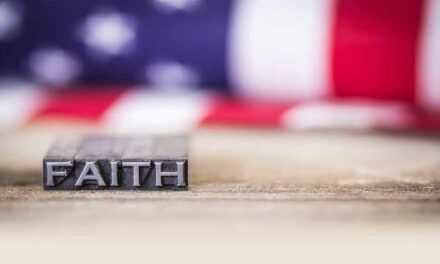Martin Luther King, Jr. A Prayer For The Church, ca., 1956
Prayer
We thank thee, O God, for the spiritual nature of man. We are in nature but we live above nature.
Help us never to let anybody or any condition to pull us so low as to cause us to hate.
Give us strength to love our enemies and to do good to those who despitefully use us and persecute us.
We thank thee for thy Church, founded upon thy Word, that challenges us to do more than sing and pray, but go out and work as though the very answer to our prayers depended on us and not upon thee.
Then, finally, help us to realize that man was created to shine like stars and live on through all eternity.
Keep us, we pray, in perfect peace; help us to walk together, pray together, sing together, and live together until that day when all God’s children, Black, White, Red, and Yellow, will rejoice in our common band of humanity in the kingdom of our Lord and of our God, we pray.
Amen.-The Rev. Martin Luther King Jr.
Reflection On Dr. King’s A Prayer For The Church
How many times have you heard someone give thanks for “the spiritual nature of man”? For the PAGA staff the answer is “never.”
MLK Jr’s A Prayer For The Church can be found multiple places throughout the internet. However, it typically begins at “We thank thee for thy Church…”. The editor of “Thou, Dear God” notes this is a pastoral prayer that Dr. King prayed frequently. True he may have prayed it exactly as many websites present it. But isn’t the spiritual nature of man the “one thing needful” to ignite faith and hope in the Gospel’s power to change the hearts of men and women?
Within the historical context of Dr. Martin Luther King, Jr., his “dream” for America seemed impossible to ordinary eyes and ears. His writings, however, bear witness to an extraordinary Christian faith through which he believed God could make a way where there was no way. Through his faith in Jesus, Dr. King persevered, encouraged others, inspired others, and remains standing as a great American hero.
For persons born after the Civil Rights Movement, it is difficult to understand or imagine the hostility and injustice experienced by African-Americans because of their race. However, this difficulty is quickly dissipating as many Americans experience hostility and injustice from global elitists, those having progressive, Marxist, socialist, and communist ideologies, otherwise known as the modern Democrat Party [no -ic on purpose] and their supporters.
Once again a portion of “we the people” face extreme divisiveness, hatred, and arrogance from bureaucratic and abstract groups who seek power and personal prosperity regardless of how it affects those “outside of their bubble.” Couldn’t this describe the Civil Rights Era too?
Today the hostility is not about a person’s race but derives from a person’s freedom of conscience. Contemporary violence has not reached the fever pitch violence and brutality of the mid-19th century, but it has reared its ugly head on multiple, lawless occasions. From teenagers at a burger joint to a grandpa in Costco; from a young journalist to a disabled veteran; from police officers to ICE agents, American citizens—of all races—have been assaulted, shot at, beat up, verbally abused, punched, etc., because of their conservative beliefs.
In keeping with the times, violence and brutality have also manifested themselves digitally, politically, judicially, and through ad naseum propaganda. Even longstanding government institutions such as the FBI, the CIA, the IRS, and others have been weaponized against people who do not think like the “establishment.” The vitriol and hatred and violence are very real. However, some non-elitists, regular people lured in by “establishment” and propaganda via mainstream media fake news, have been blinded to the new manifestations of discrimination even to the demise of the nation, and by default, themselves.
Giving Thanks For The Spiritual Nature Of Man
So, what is the significance and profundity of giving thanks for “the spiritual nature of man”? Why is it the “one thing needful” for the rest of the prayer?
Dr. King’s faith in the redemptive power of Jesus is evidenced in a couple of strategically placed words in the relatively short A Prayer For the Church. He thanks God 1) “for the spiritual nature of man” which highlights the fact that he believes in the born-again transformation of those who turn their lives over to Jesus; and 2) “for the Church founded on the Word” which challenges Christians to become more Christlike in that transformation, based on the primacy and authority of Holy Scripture.
These two fundamental realities of the power of the Gospel make possible the unity of Christ’s Body, the Church, on earth as it is in heaven. MLK Jr references Scripture found in Philippians, where Paul writes about, among other things, imitating Christ’s humility, breaking with the sinful past, and pressing toward the goal of all things being brought under the rule of Christ (Philippians 3:21):
Do everything without complaining or arguing, so that you may become blameless and pure, children of God without fault in a crooked and depraved generation, in which you shine like stars in the universe. Philippians 2:14-15, NIV
But our citizenship is in heaven. And we eagerly await a Savior from there, the Lord Jesus Christ, who, by the power that enables him to bring everything under his control, will transform our lowly bodies so that they will be like his glorious body. Philippians 3:20-21, NIV
During the civil rights period, Dr. King prayed for both black and white Christians. He advocated for non-violence and for standing up for what is right, both Christlike virtues, that succinctly encapsulate prayers for both groups.
Today we don’t have the option of praying for an opposing majority Christian group. But neither did Jesus, or Paul, or William Carey, etc. But we do have the Gospel, the power of God for salvation (Romans 1:16) which remains as powerful as ever.
Jesus clearly stated “’And I, when I am lifted up from the earth, will draw all people to myself.’ He said this to show by what kind of death he was going to die” (John 12:32-33). We can understand this both literally and figuratively. When we “lift up” Christ through our own witness, He will draw people to Himself.
Dr. King’s prayer is as relevant and urgent today as it was over 60 years later—though the historical context is different, the Gospel is eternal. Our only hope for justice and freedom of all Americans—our inalienable, God-given rights of life, liberty, and the pursuit of happiness—is Jesus Christ.
As heaven’s citizens, we must ask God to help us “never let anybody or any condition pull us so low as to cause us to hate.” And we too must pray and “go out and work as though the very answer to our prayers depended on us and not upon Thee.”
Oh Father God, how we thank You for the spiritual nature of man!

